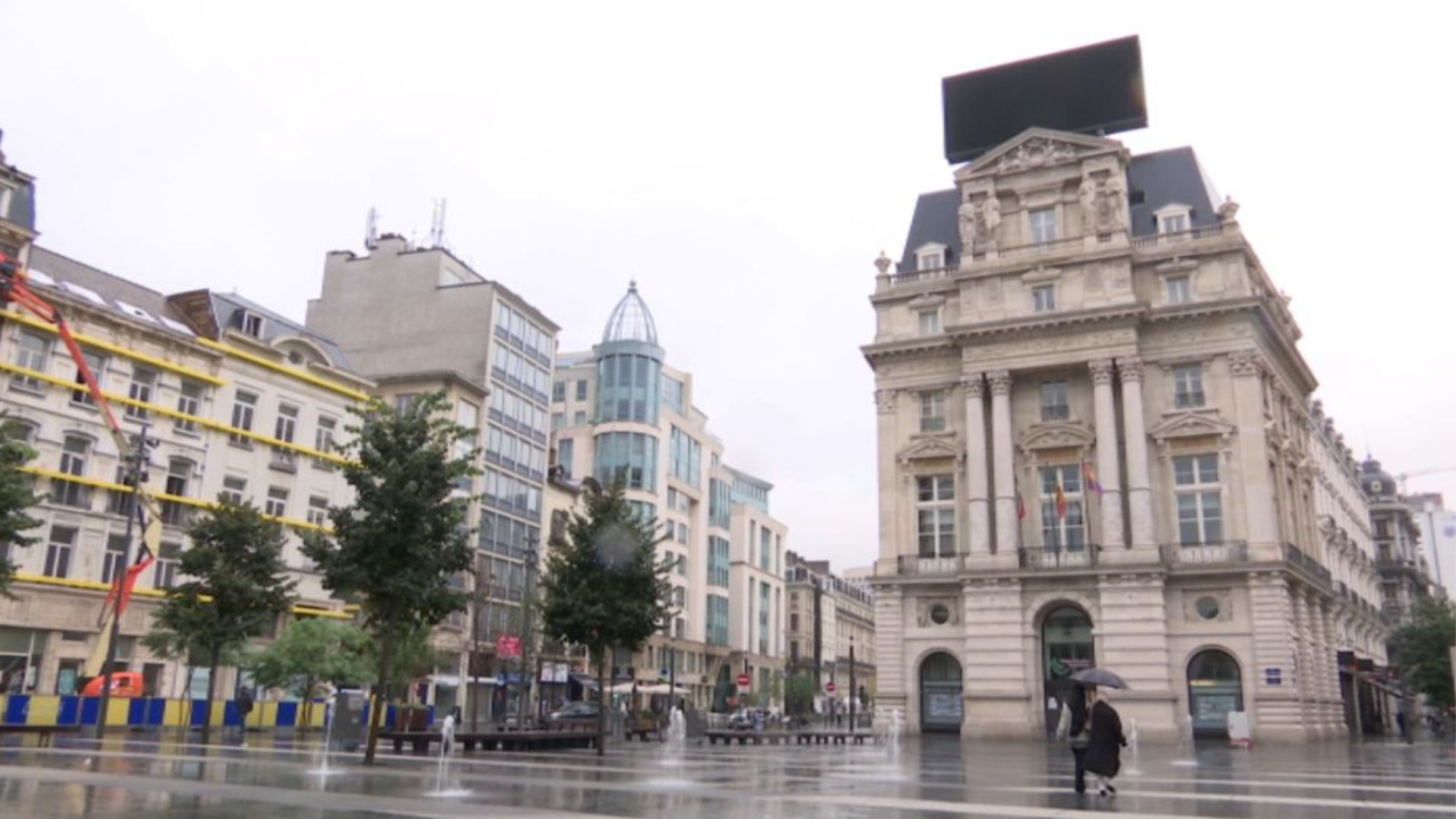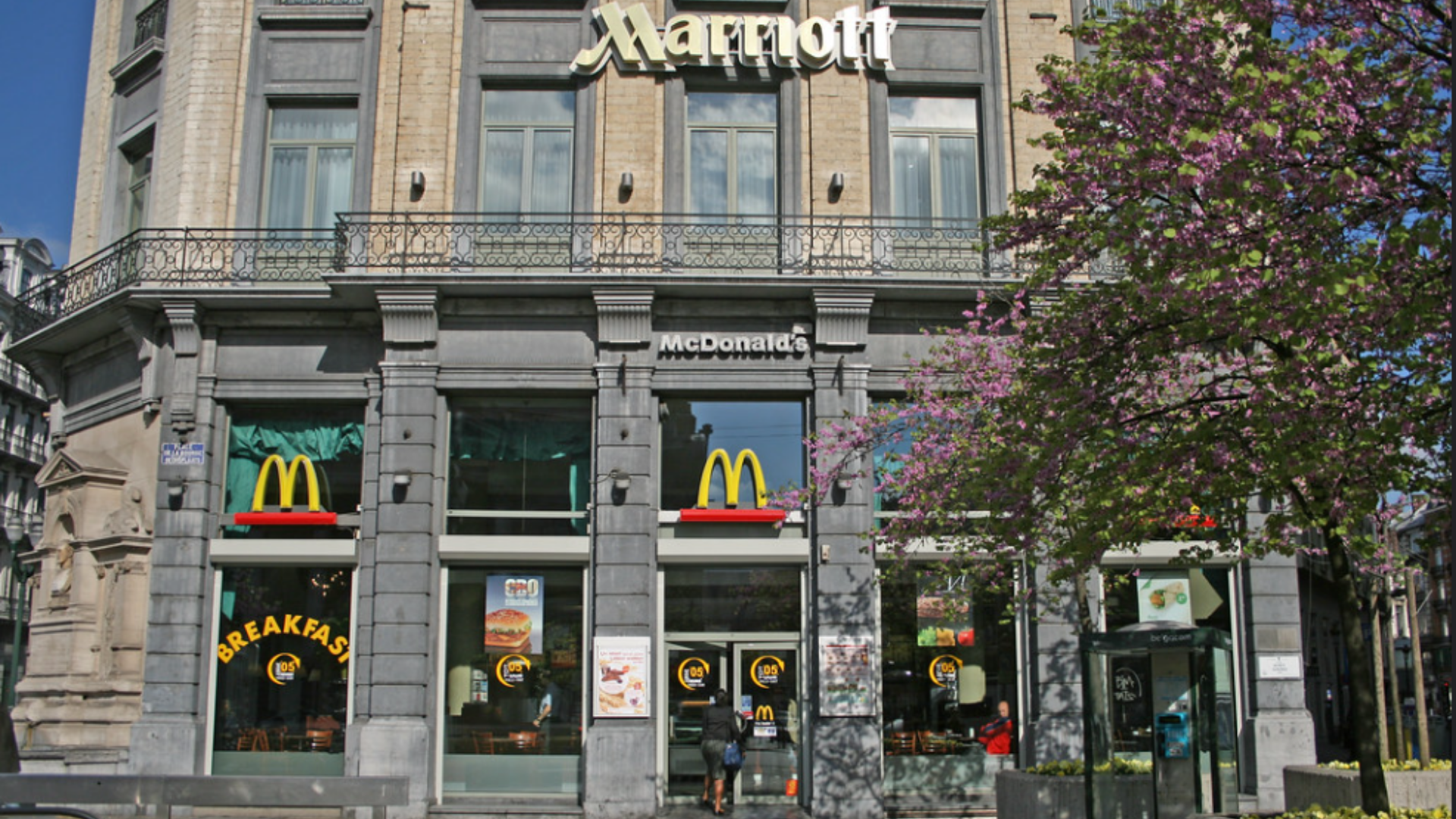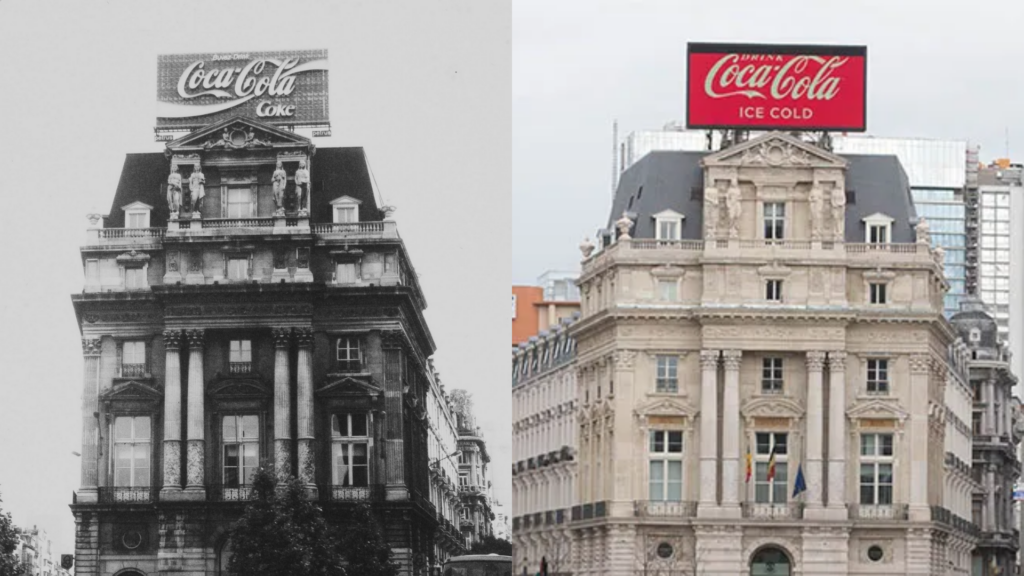Belgium’s largest and most famous billboard can be found on Place De Brouckère, Brussels. The illuminated Coca-Cola sign has divided opinion since it was first erected on top of the Continental Hotel in 1952.
Love it or hate it, decades of discussion have made the advertisement a Brussels staple. Yet the iconic red and white LED screen has recently spent most of the time switched off. This followed a 2021 decision by State Secretary for Urban Planning Pascal Smet, who called the advertisement “disproportionate”.
However, the sign arguably looks even more conspicuous switched off: a strange decoration sitting atop the grand building that is currently home to Brussels’ governmental housing association (Régie Foncière).
Yet a hearing in the Brussels parliament on Monday shed little light on the screen’s future, Bruzz reports. Nonetheless, the sign’s history remains a source of intrigue.
Historic billboard
Prior to Coca-Cola dominating the Brussels square, a once-prestigious French aperitif was advertised in the 1920s. The neon Coca-Cola sign was installed in 1952, three years after the first cola factory in Belgium had opened its doors.
The current LED screen measures 5.5 by 12 metres and was put up in 2011. In 2013, Brussels Environment made Coca-Cola dim the bright light and in 2015, the sign was hacked by activists who used it to draw attention to the fight against the TTIP trade agreement.

The billboard has been switched off since 2021. Credit: Belga
For some, the sign is a classic feature of the Brussels skyline. In his 2019 book Brutopia, author and journalist Pascal Verbeken described it as "the last remnant of the jazzy soul of De Brouckèreplein."
Moreover, Brussels City receives €12,000 in monthly rent; some city officials are reticent to see it go. Besides, "people are attached to it," says Wafaa Hammich, spokesperson for the city’s mayor.
Coca-Cola Belgium is hopeful that its advertisement will be granted a new lease of life: “We look forward to the next discussions. Of course, we hope to reach an agreement so that this historic screen will not disappear.”
Related News
- Coca-Cola, Pepsi and Unilever are world's biggest plastic polluters
- Eco-city: Over 1,500 trees planted this winter by Brussels Mobility
But marketing expert Gino Van Ossel is not surprised that Pascal Smet is planning to pull the plug on the illuminated billboard: “Advertising has to become more discreet, the visual pollution of heritage is under greater scrutiny."
“People are paying more attention to their environment and advertising should be more discreet and integrated into the streetscape.”
Brussels is becoming increasingly aware of the importance of the city’s aesthetics, with more regulations introduced to improve its visual aspect. “Cars must park underground, no longer along the road. Regulations are also becoming stricter for chip shops, another piece of Brussels heritage,” Van Ossel explains.
He cites the modest marketing of the McDonald’s outlet on the equally iconic Place de la Bourse, which merges into the environment, he says.

The McDonalds outlet at Place de la Bourse is more integrated into its surroundings, experts say. Credit: Flickr
Uncertain future
While Coca-Cola has filed an appeal for suspension and annulment against the government’s decision, the Brussels government remains indecisive. “We are waiting for the auditor’s report and the decision of the Council of State before we take new measures against Coca-Cola,” Smet said.
“If the screen remains, we will follow the classic procedure, which consists of drawing up an official report and informing the public prosecutor. We will then require [Coca-Cola] to remove the sign and restore the roof to its original condition and impose an administrative fine.”
Smet is also waiting for the plans from the City of Brussels for the Hotel Continental. “Everything depends on that. Does the City want to keep the technical installation on the roof or does it want a work of art? That decision has not yet been made, but we are waiting for it.”

